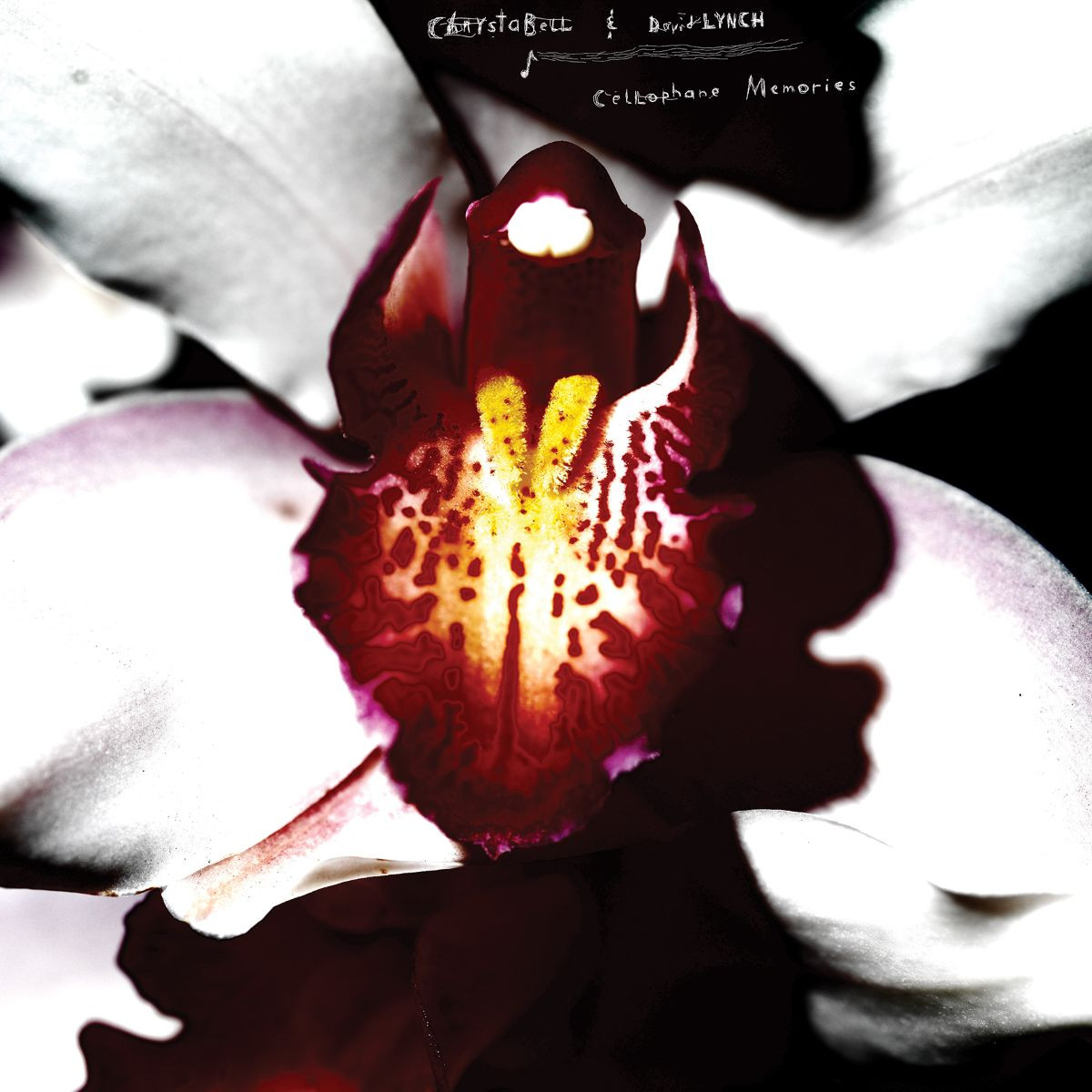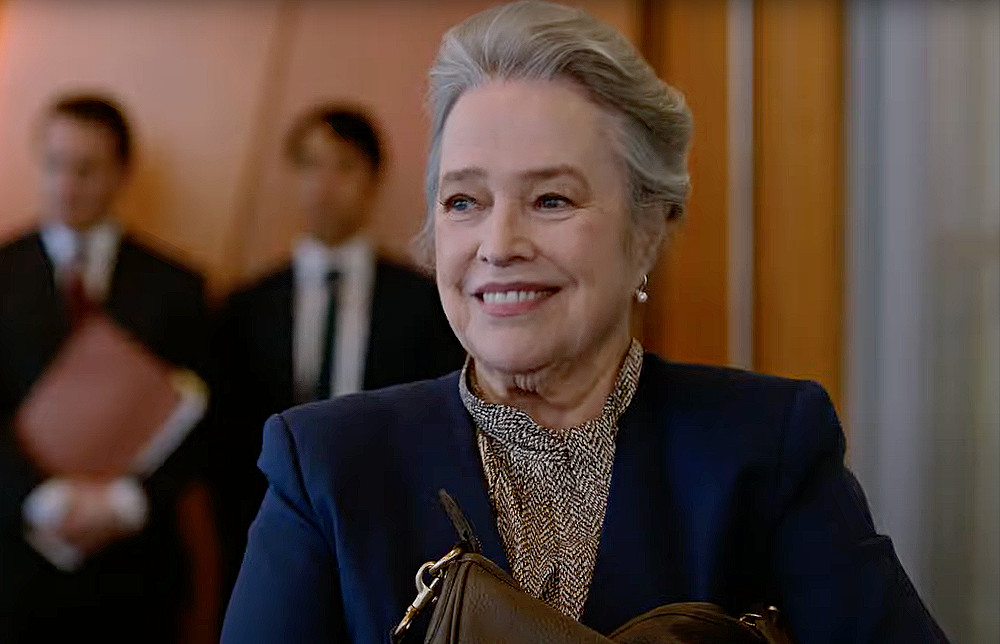The presence of director David Lynch’s name atop the new Chrystabell album, Cellophane Memories, will attract curious ears it might not have otherwise. After a few listens, however, you may wonder less about what Lynch brought to the table, and more about why Chrystabell, a Texas-based singer, is credited just once. Cellophane Memories should be attributed not to Chrystabell but to Chrystabells, plural. The greatest virtue of this beautiful album is how it layers her voice over and over—and over—again.
The opening of “With Small Animals” is a prime example of this collage effect—her vocal lines spin free from their ambiguous origin point like threads of an ever-fraying fabric. On “The Sky Falls,” the effect is more strategic, vaguely resembling a classical canon; the pacing of overlaps is ambiguous but still calculable. A synthesizer backdrop lends it an almost irritating texture, giving this seeming evanescence a uniquely off-kilter quality.
Layers of Sound
Cellophane Memories may be pretty, but it’s not easy. On “Reflections in a Blade,” the vocal bits are harshly clipped, providing a fractured view of an uncertain whole. They flicker by, the patterning delicious, forming a jumbled mess of voices. Behind the chorus a lone synth hums, interspersed with what sounds like someone breathing through a saxophone. The majority of the songs have just an instrument or two in the background, but each selection reflects exquisite decision-making. And each production element firmly reflects Lynch’s presence.
As a filmmaker, Lynch suffuses his work with sound, from the lush scores that Angelo Badalamenti provided for Twin Peaks and Mulholland Drive, to the essential presence of pop songs, like those of Roy Orbison in Blue Velvet and Chris Isaak in Wild at Heart, all the way back to the radiator drones of his debut, Eraserhead. Lynch’s sonic hallmarks are everywhere on Cellophane Memories, from the earnest treacle of Badalamenti’s backing pads (the composer died in 2022, but is spiritually present here), to the tremolo-thick guitars of Orbison and Isaak, to the haunting rumble favored in his film sound designs. There are also mechanized rhythms—bone machine beats, à la Tom Waits—that bring to mind other Lynch pop forays, most notably his work with the late Julee Cruise, who died the same year as Badalamenti.
Echoes of the Past
Chrystabell doesn’t merely sing back-up for herself: The dovetailing of her vocals means you don’t always know what’s the main line, what’s an echo, and what’s an eerie backmasked premonition. Vocally, it’s clear that Cellophane Memories owes a debt to numerous gloomy and dreamy pop concoctions of the past, like Mazzy Star, Cowboy Junkies, Kate Bush, and Nico. There’s also a strong influence of art-pop forebear David Sylvian—whose dramatic, self-correcting melodic arcs she follows as if she wrote a dissertation on the subject.
It’s difficult to listen to the layered vocals on Cellophane Memories and not think of the roles that mirrors and fractured identities play in Lynch films. The layering is so persistent that it’s unclear if that consistency signals conceptual coherence or extended sameness. As a listener, I came down a little more on the latter end of that continuum—over-consistency is the album’s main, perhaps sole, demerit—but it makes up for that sameness in countless other subtle, subconscious ways.
A Dreamy Escape
Lynch and Chrystabell have created an album that is both dreamy and unsettling, a soundscape that is both familiar and alien. The album is a meditation on memory, identity, and the nature of reality itself. It is a hypnotic and mesmerizing listen, one that will stay with you long after the last note has faded.
Lynch's influence on the album is undeniable. His signature sound design, his love of the ethereal and the uncanny, and his penchant for the surreal are all present. Chrystabell, meanwhile, brings her own unique voice to the project, her vocals both haunting and beautiful. Together, they have created a truly unique and unforgettable listening experience.
The Music, the Lyrics and the Dreams
The music is a mix of ambient textures, synth pads, and delicate guitar lines, all of which create a sense of dreamy atmosphere. The lyrics, meanwhile, are often vague and enigmatic, leaving the listener to draw their own conclusions.
Lynch's Signature Sound Design
Lynch's signature sound design is evident throughout the album. He uses a wide range of effects to create a sense of atmosphere and unease. The music is often layered and textured, with echoes and reverberations creating a sense of depth and mystery.
Chrystabell's Haunting Vocals
Chrystabell's vocals are a key element of the album's sound. Her voice is both haunting and beautiful, and she uses it to great effect in the album's atmospheric and dreamy songs. Her vocals are often layered, creating a sense of depth and complexity.
The Music of a Dream
Ultimately, Cellophane Memories is an album that is best experienced on its own terms. It is not an album for everyone. But for those who are willing to let go of their expectations and allow themselves to be swept away by its dreamy and ethereal sounds, it is a truly rewarding listen.
An Enduring Legacy
Cellophane Memories is an album that is sure to be a favorite of Lynch fans. It is a testament to his enduring legacy as a filmmaker and musician. It is also a testament to Chrystabell's talent as a singer and songwriter. Together, they have created a work of art that is both beautiful and unsettling, and sure to stay with you long after you have finished listening.

















